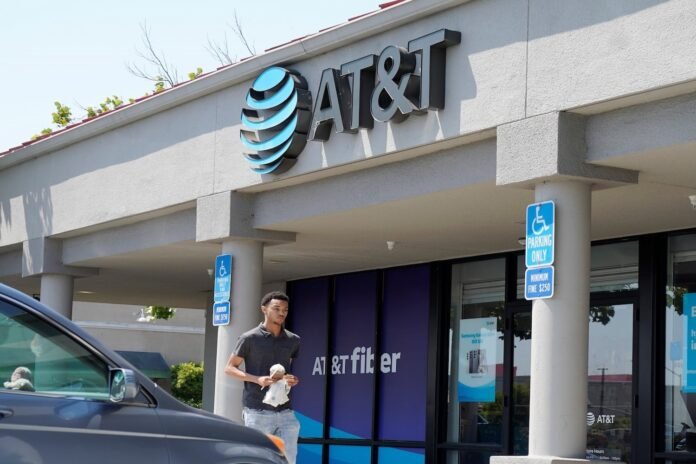It feels like the issue should have been resolved by now, but unfortunately, seventeen years after the launch of the original iPhone, we’re still debating the carrier’s device lockout.
T-Mobile and AT&T responded this week to the FCC’s proposed rule that would require carriers to unlock phones within 60 days of activation, even if they are under contract and not yet paid off.
In their responses, the carriers argue that quickly unlocking phones would harm consumers because locking a phone to a specific carrier allows cheaper handsets to be supplied to consumers. Advocacy groups say the new policy would give users more choice and lower their costs.
The FCC has specifically called on T-Mobile to lock prepaid devices sold under the Metro brand to its network for one year after purchase.
The carriers claim this is a good thing. “For example, T-Mobile estimates that its prepaid customers would see subsidies reduced by 40 to 70 percent for both lower-end and high-end devices,” the carrier said in response to the FCC’s public request for comment on the Notice of Proposed regulations. “A handset unlocking mandate would also leave carriers little choice but to limit their handset offerings to lower cost and lower performance handsets.”
The FCC has considered how the proposed rule could affect subsidies, but still believes that, especially for prepaid customers, locking down devices is harmful. By Ars Technica:
The FCC acknowledged Verizon’s argument “that carriers may rely on handset locking to maintain their ability to offer handset subsidies and that such subsidies may be particularly important in prepaid environments.” But the FCC noted that public advocacy groups “argue that locked handsets associated with prepaid plans may particularly disadvantage low-income customers who may not have the resources to switch service providers or purchase new handsets.”
Interestingly, Verizon isn’t too strongly opposed to this new rule, as it already unlocks devices 60 days after purchase due to the requirements placed on them after purchasing new spectrum. Verizon would likely benefit in some way, as customers from other networks would be able to switch to its network more easily. Even when a phone has been financed and paid off in full, carriers often still have a waiting period before the device can be unlocked.
“You bought your phone, you should be able to take it to any carrier you want,” FCC Chairman Jessica Rosenworcel said when the FCC proposed the rule. “Some providers already work this way. Others don’t. Some have even recently increased the time their customers have to wait to unlock their device by as much as 100 percent.”
If you remember, people were stunned when the original iPhone was released in 2007 at a starting price of $499. To boost sales, the major carriers like Verizon and AT&T began subsidizing the cost of the phone, giving customers a low could pay the price up front and finance the rest, usually in monthly installments over a two-year period.
Simple enough to understand, but over the years the business model has caused a lot of confusion and uproar among customers who invariably feel trapped or cheated by the deals they have entered into. I know, my own parents still don’t understand that the iPhones they bought a year ago aren’t actually “free,” and that switching to another carrier for cheaper service would require a costly buyout of their phones.
Additionally, carriers like Verizon often require customers who take advantage of one of these “free” device deals to subscribe to a top monthly plan. Now, if you look at Verizon’s website, the carrier claims you can “get iPhone 15 Pro Max from us,” but the fine print specifies that you must choose an Unlimited Ultimate plan to get the deal. It’s a similar situation at AT&T. The device is financed at 0 percent interest for 36 months, which seems great, but you’ll have to choose a more expensive service plan, and again, the carriers like to keep the devices locked up even after they’re paid off. The FCC is instead proposing a hard unlocking requirement to eliminate some of this friction.
Locking a financed device to a network until it pays off might make sense because it doesn’t allow a customer to take the phone elsewhere and skip payments. A corollary to this might be car dealers putting GPS trackers in devices purchased with a loan. You can still drive your car to Mexico and stop making payments, but it’s not a good idea for your credit or the ability to get another car loan in the future. The same goes for phones: if you burn AT&T or T-Mobile, you’re left with no other options. It doesn’t appear that device locking is there to prevent loan write-offs.
Perhaps device financing should be decoupled from service fees so that consumers can better understand the actual price they’re paying and aren’t forced into a premium plan to get financing. There must be a better solution than the current system, which means that many consumers do not understand how much they are actually paying and that the phone is far from ‘free’. Locking down devices only creates friction and makes consumers pay for more expensive services than they actually need, but from the carrier’s side it makes sense to prevent customers from going elsewhere.





